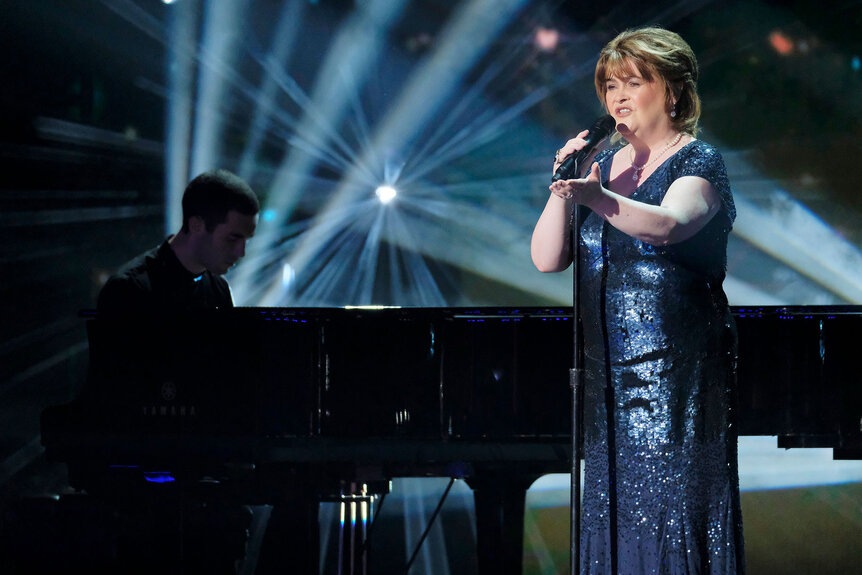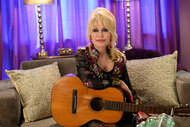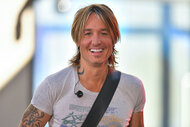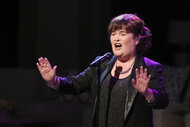Susan Boyle's Ethereal "Mad World" Cover Will Transport You to Tranquility
It's moody and raw — and nothing at all like the original!
Throughout her career, Susan Boyle hasn't shied away from taking contemporary hits and making them her own.
Although the Got Talent star shines arguably the brightest when performing timeless religious hymns and famous Broadway songs, there's something about her covering Tears For Fears' "Mad World" that puts a smile on our faces. The new wave group is unabashedly '80s, and in 2011, Boyle included her version of "Mad World" as part of her third studio album, Someone to Watch Over Me. (She also included the same recording in the 2019 compilation album, Ten.)
The original is a poppy, radio-friendly bopper that is impossible to get out of your head. Boyle's version, on the other hand, is angelic and understated. It's a must-listen.
Boyle's vocals, laid over simple acoustic guitar and some atmospheric effects, shine as she puts her own spin on a classic. The result is a rollercoaster ride of emotion.
The song is incredibly moody, and Boyle sings it in a lower register than usual, highlighting the impeccable tone that has made her world-famous.
Here's what to know about "Mad World"
Released in 1982 as a single and found on Tears For Fears' 1983 debut album, The Hurting, "Mad World" was instrumental in the success of the new wave band.
In 2013, lead singer Curt Smith spoke to The Guardian about the band's hopefulness when they recorded the track.
RELATED: Susan Boyle's Lush "Stand by Me" Cover Is Bursting with Love and Light
"We released 'Mad World' as a single because we felt the music press would like it," he confessed. "But it was also supposed to just give us a foothold for the next two singles, which were more commercial. We didn't expect it to become a hit."
RELATED: Susan Boyle's Sky-High Falsetto Singing "Wild Horses" Is a Gift From Heaven
Although the song failed to chart on the Billboard Hot 100 in the United States, the song was popular overseas, especially in the U.K. Fortunately, mainstream U.S. success came soon after for the group thanks to future hits like "Everybody Wants to Rule the World" and "Shout," both released in 1985.





















